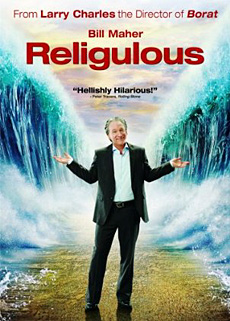 |
| Image from BigShinyRobot.com |
|
Midnight in Paris has all the hallmarks of a Woody Allen film. It’s a love poem to a city, with a neurotic character at its center with a love story guiding the narrative, yet with a few minor adjustments he infuses this film with a new spirit. The film opens on a montage of gorgeous scenes of modern day Paris. Images of its shops juxtaposed with its museums and historical artifacts. This blending of history and modern times will soon become allegorical to the overall storyline.
The protagonist, Gil, played by Owen Wilson, has come to Paris with his fiancée Inez (Rachel McAddams) and her family. He is a writer, frustrated that he’s only been successful at writing superficial screen plays for inane Hollywood movies and he yearns to become a respected novelist. His challenge is that he suffers from writer’s block, unable to finish his book about the owner of a nostalgia shop.
Gil is taken with the city’s beauty, yet longs for the Paris of the 1920s (preferably in the rain). As a writer he wishes to exist when the likes of Hemingway, Fitzgerald and Stein inhabited the city and mingled with other great artists. Inez, on the other hand is singularly focused on the future – the close future, mind you. She’s constantly planning that day’s activities for Gil, shuttling him around from fancy lunch to pretentious gallery while her pedantic friend Paul (Michael Sheen) acts as would-be tour guide and jabbers on and on about his expertise in nearly every arena. These two are, like the opening scenery, directly contrasted to one another yet unlike with the city of Paris, the differences don’t suit them as well.
Inez and Gil represent the two sides of the spectrum – one who is stuck in the past and the other is focused on the future. Inez is portrayed as the spoiled brat who always insists on getting her way, clearly the antagonist in this narrative. Our protagonist is more sympathetic, but ultimately succumbs to the same mistakes that Inez does, it just manifests itself differently.
One night Gil has had enough of being told where to go and makes the decision to separate himself from the group. He wanders aimlessly around Paris when an olde-timey car pulls up and the party-goers inside insist he join them to their party. He acquiesces and is whisked away to an era filled with his literary and artistic idols. (Mind you, keeping with the rather whimsical spirit of the film, Allen never explains how this time travel occurs.) At the party he listens to Cole Porter sing his original songs, speaks to Zelda and Scott Fitzgerald about parties and converses with Ernest Hemingway about bravery and what it means to be a man. Later he meets Adriana (Marion Cotillard) who is his 1920s counterpart. They romanticize about bygone eras and wish for a better time. She is the perfect contrast to Inez, who upon growing closer to Adriana begins to realize just how vapid his modern day bride to be is. Without too much of a real story, this film manages to be sweet and charming. And it was a fun wink and a nod when each character from the past graces the screen.
Ultimately the message in this film is about time and idealizations and the people who romanticize the past and previous eras. Gil, nostalgizes about an era in which he never lived. He even chooses to write his would-be masterpiece about someone who does the same. There is something universal about the notion of wishing you lived in a different era. Even if 1920s Paris isn’t your ideal, chances are you’ve considered another decade or age for which you would be better suited. While technically it’s an impossibility to be “nostalgic” for a time in which an individual didn’t live, it’s a common occurrence where people idealize other eras as having been better without actually knowing what that era was like first hand. Hindsight tends to gloss over the negatives of an era as the positive romanticized images are often the ones that live from generation to generation. For example, as a child I wished I was growing up in the 1960s in America. Great music, cool clothes, outdoor concerts, what's not to love? It was only when I got older and learned of the forced draft, mounting violence, and social and political upheaval that also ruled the time. But those negatives aren’t the ones that history puts on display so they’re easier to gloss over and forget.
Time is a funny thing. As one friend of mine once said, “History is propaganda of the victors.” In this instance, “the victors” are the good times which, on an admittedly superficial level, are the ones that remain top of mind. The negatives of our own time seem to the ones that remain top of mind for us. In that context it’s interesting to think that one day, decades from now, there will be people who idealized the late 20th century and early 21st century and wished they could have lived as we live now. The lesson of
Midnight in Paris, and what Gil must realize for himself, ultimately is to enjoy your moment, your generation and your time. It’s ok to appreciate eras of the past, but not at the expense of enjoying what you have in front of you.







